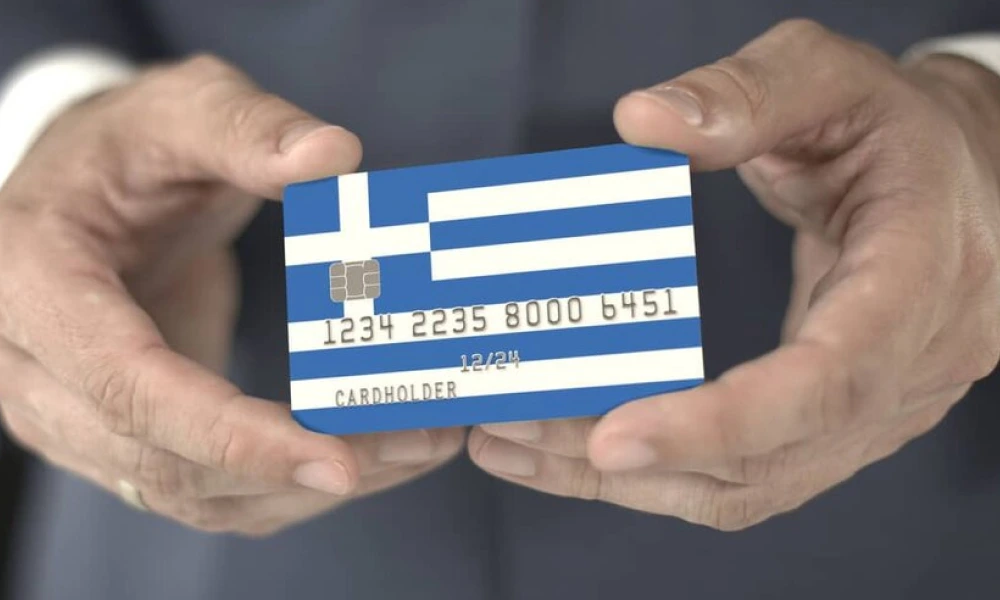Having a current account in a Greek bank is a must if you plan to live, work or do business in the country. This simplifies receiving income, everyday financial transactions, and transfers of funds without any additional fees.
Being the holder of an account in a local bank is a prerequisite for opening a Greek residence permit.
Below, we tell you how a foreigner can open a bank account in Greece and what documents are needed to do this.
Where to Open an Account: the Main Greek Banks
There are more than 30 banks operating in Greece. Among them, the largest are:
- National Bank of Greece – the State National Bank of Greece is one of the oldest in the country, and has been operating since 1841. This bank has more than 330 branches throughout the country.
- Piraeus Bank – the largest bank in Greece by assets and the number of branches – with more than 400 across Greece. Opened in 1916.
- Alpha Bank – has been operating since 1879, and there are currently more than 320 branches in Greece.
- Eurobank is the fourth largest bank in Greece, operating since 1990. There are about 300 branches across the country.
Greek banks are mostly focused on the domestic market, and foreign branches are rarely opened.
The credit rating of local banks is quite low: this is due to the fact that the Greek economy is still recovering from the 2009 financial crisis. Nevertheless, in 2025, Moody’s assessed the country’s credit rating as Baa3 – with a stable outlook. In addition, all funds deposited in Greek bank accounts are insured.
Banks in Greece are open from 8am to 2pm on weekdays. There are also branches that are open until 8pm-9pm from Monday to Friday, as well as on Saturdays, but it is better to clarify this in advance before visiting. In addition, most everyday financial transactions, like transfers and payments etc. can be made through mobile applications or through a personal account on the bank’s website.
How to Open an Account as a Foreigner
Large banks are more focused on working with foreigners, but their policies may differ significantly. Some banks will open accounts for foreigners only if they have a local residence permit, or in other cases a resident status may not be required, but there may be more document requirements, a more serious due diligence check, and it might take much longer to set up.
To open an account, a foreign citizen must provide documents confirming their identity, tax registration, source of income, and permanent registration address. This service is available in person and you can use an authorised representative who can submit documents on your behalf, and provide a sample of the client’s signature during the final stage of the process. The applicant will also need to undergo an interview with a bank employee.
Checking the reliability and legality of the source of funds is carried out according to the principles of Know Your Customer (KYC). In recent years, the conditions of this process has become more stringent in accordance with the norms and requirements of international organizations, especially with respect to citizens of third-world countries that are not members of the FATF, OECD, and others.
The bank may request additional documents to confirm the legal origin of the money.
To successfully pass the check, you need a good credit history, no debts and no previous issues with paying taxes.
Astons can help in opening an account in a Greek bank when applying for a Greek Golden visa.
Required Documents
To open an account in a Greek bank, you must provide the following:
- Identity documents. As a rule, two documents are requested: a valid passport and, for example, a passport of the country of origin or a driver’s license.
- A certificate of income from the current place of employment.
- A bank statement from the country where you already have an account.
- Documents confirming the address of permanent residence. For foreigners, this is either rented or owned real estate in Greece, or a registration address from your home country.
- A telephone number confirmed by the telephone company or mobile network operator.
- A tax return and an individual taxpayer identification number. You can provide a TIN of the country of residence – if your jurisdiction participates in the tax information exchange system, or the Greek equivalent – AFM. You can issue an AFM quite quickly and free of charge at the Tax Office for foreign citizens working in Greece. The main condition is to have a tax representative with local citizenship or a residence permit.
- Declaration of refusal to use a personal bank account for commercial purposes. The document is signed in person at one of the bank’s branches.
- Sample signature of the client.
All documents must be translated into Greek, authenticated and certified by a notary. The processing period for the package of documents and consideration of the application is between 7-10 days.
If there are no errors in the applications and submitted documents, and you have passed the reliability check, the outcome will almost always be positive. Although the bank always reserves the right to refuse to provide services without explanation.
What Products Greek Banks Offer
Foreigners can open current accounts and receive the following benefits: a chequebook and overdraft, savings accounts with interest accrual on the balance, deposit accounts with no restrictions on withdrawal of money. You can also open a term deposit: the conditions and minimum amounts differ depending on the chosen bank. In any case, a foreigner who has opened an account can order a bank card, make transfers, withdraw cash from ATMs and branches, and pay for goods and services.
Accounts can be opened in euros or any available global currency, and the service is usually free.
To open a savings account, you will need to deposit a minimum amount – usually no more than €1,000. Interest rates in Greek banks are low at 0.1% per annum, and are rarely any higher. An increased percentage applies to salary and pension accounts.
The consumer loan rate in Greece is 10%, but for credit cards the interest is usually higher – between 12-22%. The mortgage lending rate is 3-4% per annum for up to 30 years, and money can be used not only for the purchase of property, but also for repairs or improving the energy efficiency of housing.
How to Get a Residence Permit in Greece
There are several ways to obtain a residence permit in Greece, but the most effective and fastest option is an investment one.
The Greek Golden Visa programme allows you to get a 5-year renewable residence permit within just 3-6 months for investing in real estate to the amount of €250,000.
As part of the programme, you must purchase real estate in Greece, and investors have several options with different levels of financial investment, including:
- From €800,000 — purchase of one property with an area of 120 m² in Athens, all of Attica, Thessaloniki, Mykonos, Crete, Santorini and other islands with a population of more than 3,100 people.
- From €400,000 — purchase of one property with an area of 120 m² in all other regions of the country.
At the same time, the minimum entry threshold can be kept at €250,000.
These conditions apply in two cases:
- When purchasing real estate that is changing its purpose from commercial to residential. In this case, the developer buys out a commercial property, for instance, a factory, a hotel, etc., completely renovates it and makes it suitable for living. The investor ultimately gains brand new housing with modern fittings in a fully renovated building that has been converted into a residential complex.
Properties that meet these conditions are located mainly in the Attica region – including Athens, which means that you still have the opportunity to purchase housing and obtain a residence permit for a minimum amount in regions with a high investment entry.
- When purchasing real estate of any size in any region that is of cultural or historical value. In this case, the investor undertakes the complete repair and restoration of the property within 5 years and carries out all the work independently.
In addition to the opportunity to legally live in Greece, the resident status gives its holder an impressive list of advantages:
- Visa-free travel across the Schengen Area
- Opening a business in the region – for example, in the Eurozone
- Access to the services of local banks without restrictions
- European education and high-quality healthcare
- Optimized taxation
- Family eligibility: spouse, children under 21, and parents on both sides
- Opportunity to live in a European country with a warm climate and a high standard of living
- Greek citizenship – after 7 years of residence and subject to certain conditions.
Investors get the opportunity to either live in their own residence in the Mediterranean or rent it out, receiving a reliable stable income in foreign currency to the amount of 4-5% per annum.
Our experts will help you choose an option that suits your budget and will answer all your questions so you can make the right choice for you and your future.



